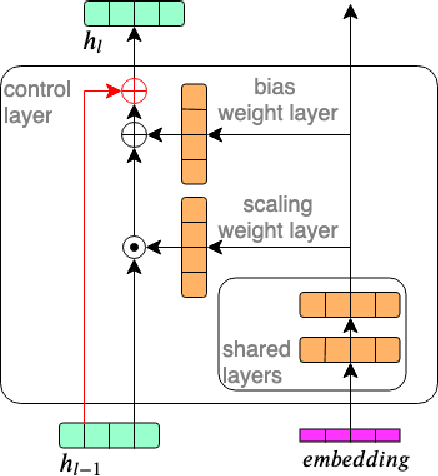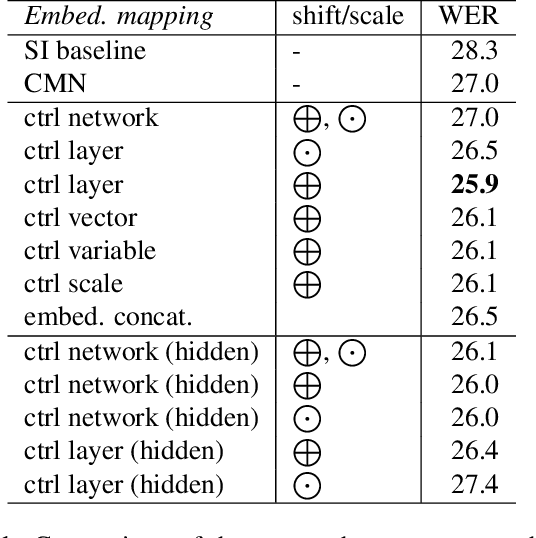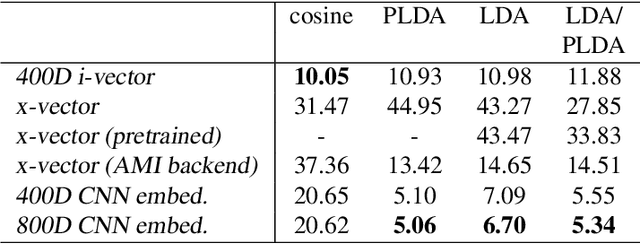Embeddings for DNN speaker adaptive training
Paper and Code
Sep 30, 2019



In this work, we investigate the use of embeddings for speaker-adaptive training of DNNs (DNN-SAT) focusing on a small amount of adaptation data per speaker. DNN-SAT can be viewed as learning a mapping from each embedding to transformation parameters that are applied to the shared parameters of the DNN. We investigate different approaches to applying these transformations, and find that with a good training strategy, a multi-layer adaptation network applied to all hidden layers is no more effective than a single linear layer acting on the embeddings to transform the input features. In the second part of our work, we evaluate different embeddings (i-vectors, x-vectors and deep CNN embeddings) in an additional speaker recognition task in order to gain insight into what should characterize an embedding for DNN-SAT. We find the performance for speaker recognition of a given representation is not correlated with its ASR performance; in fact, ability to capture more speech attributes than just speaker identity was the most important characteristic of the embeddings for efficient DNN-SAT ASR. Our best models achieved relative WER gains of 4% and 9% over DNN baselines using speaker-level cepstral mean normalisation (CMN), and a fully speaker-independent model, respectively.
 Add to Chrome
Add to Chrome Add to Firefox
Add to Firefox Add to Edge
Add to Edge